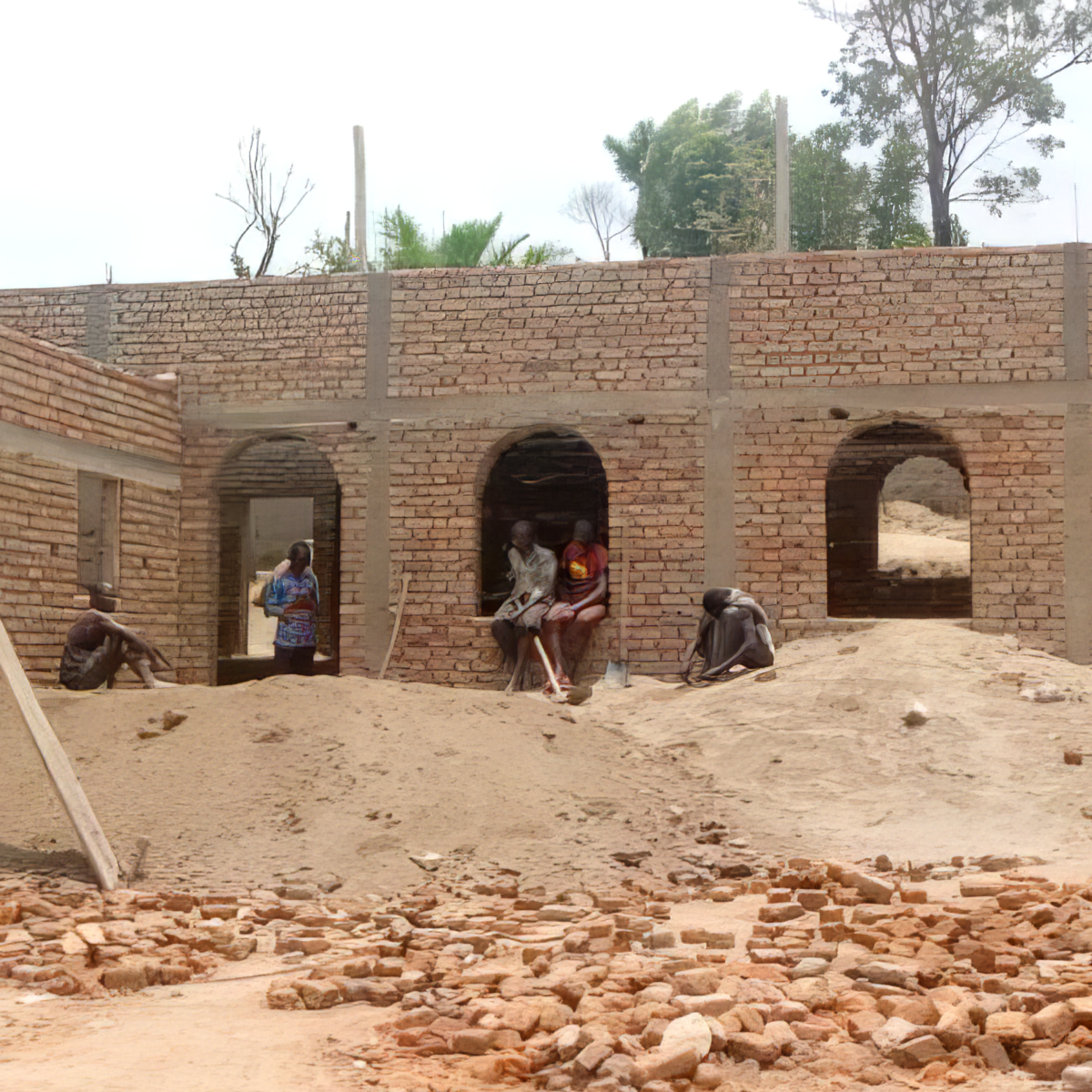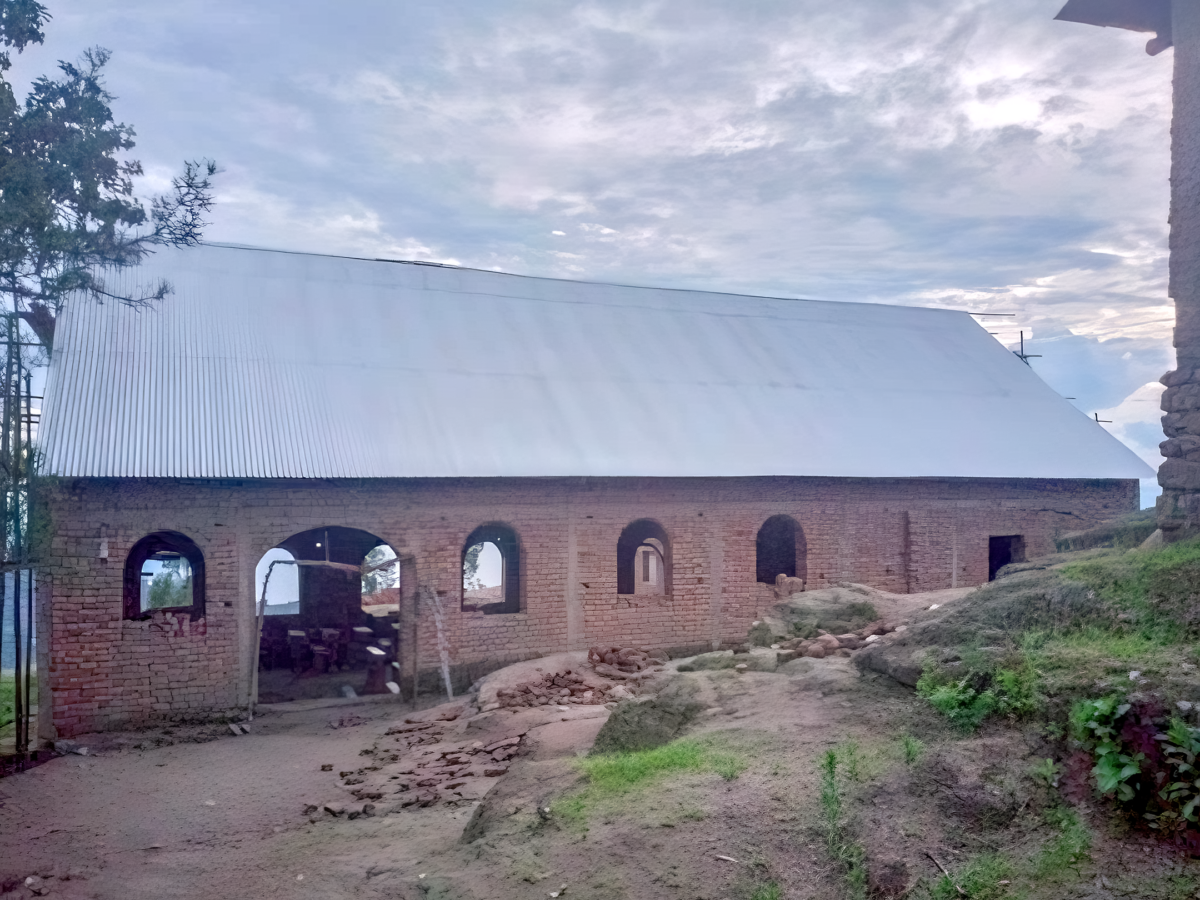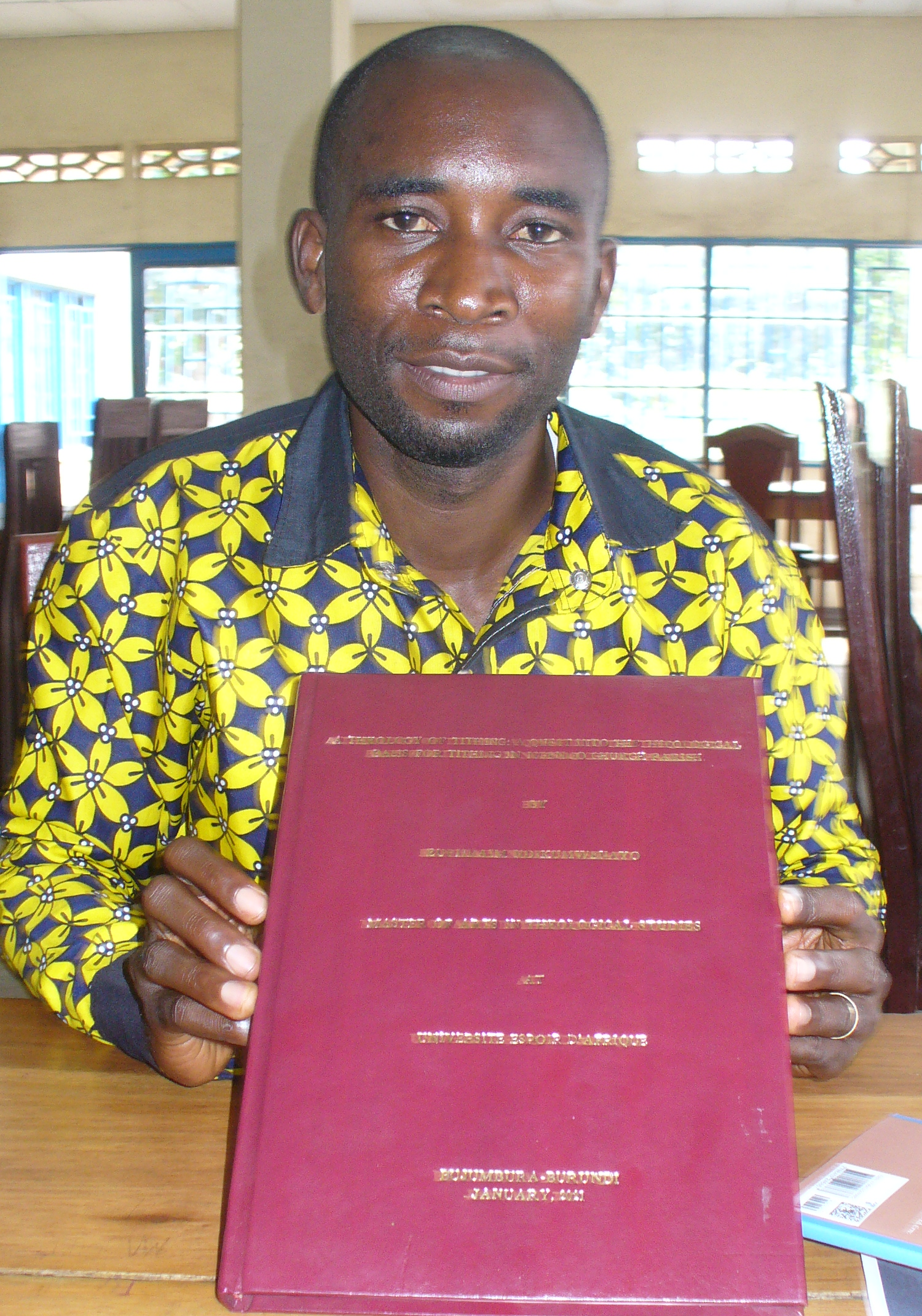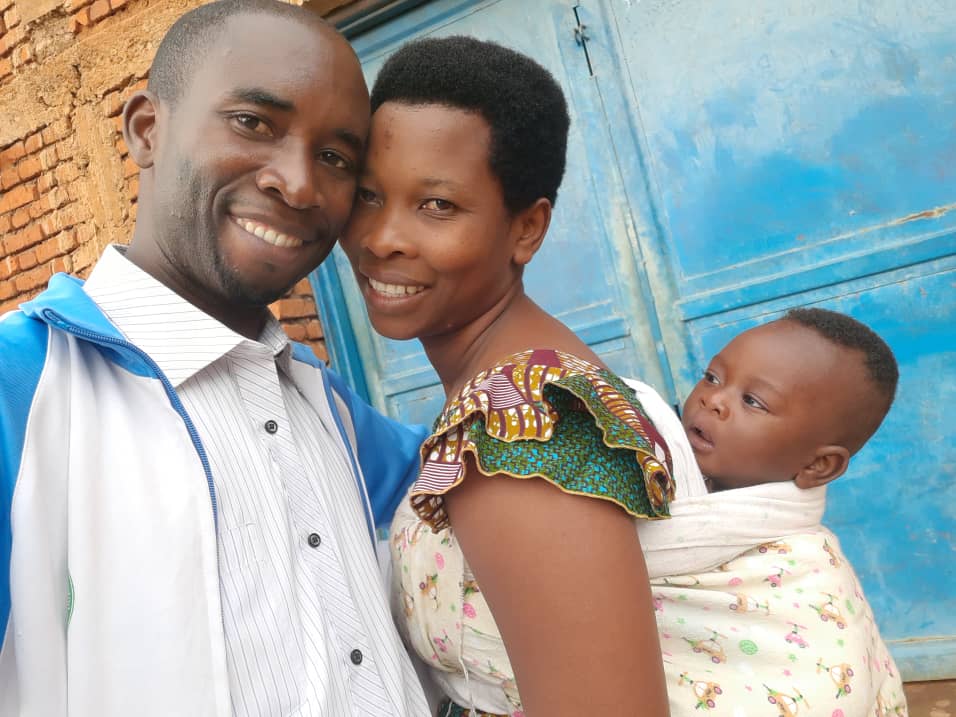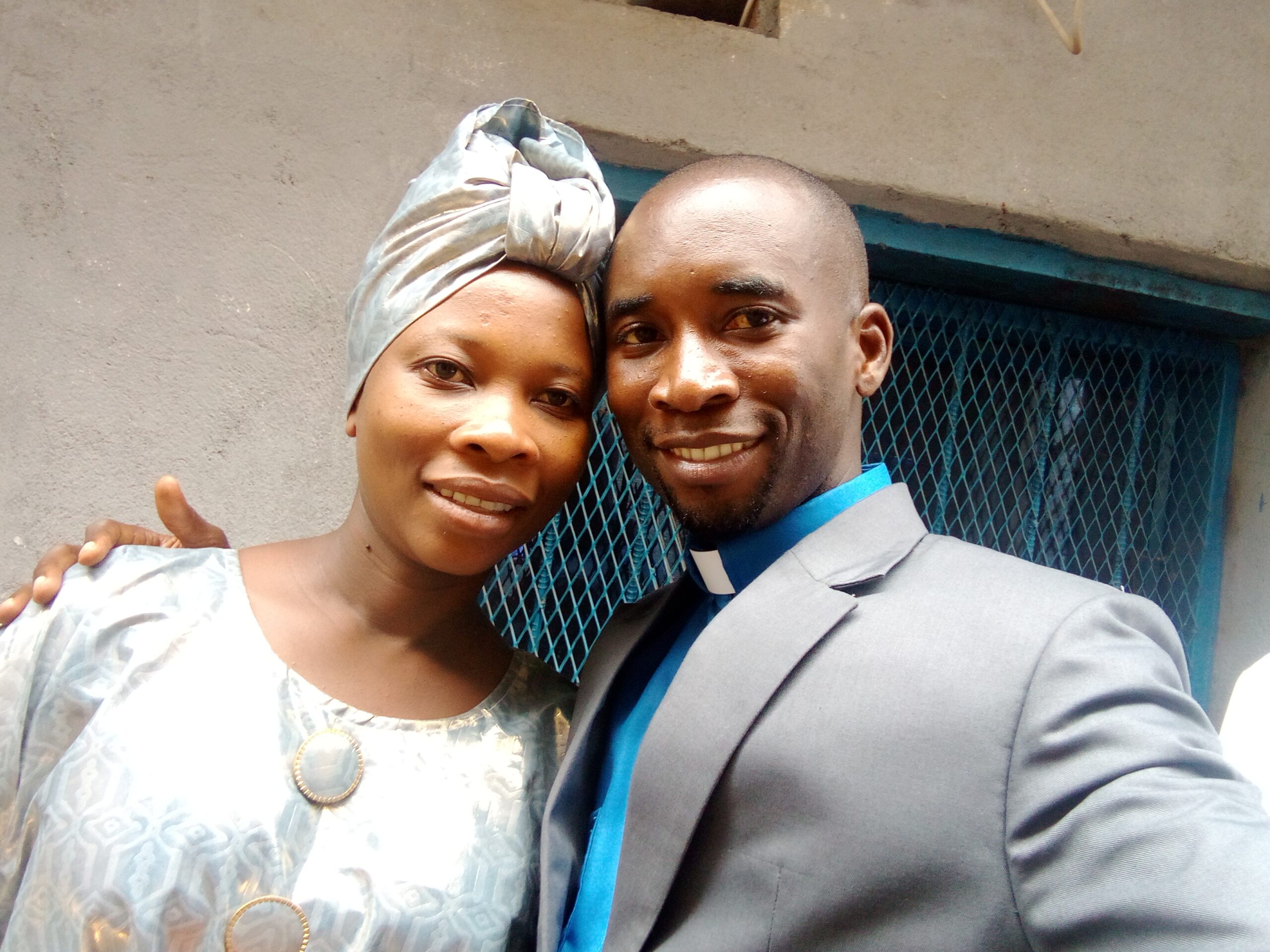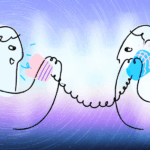I wandered Jan. 12 into Hope Africa University’s Vibbert Student Center on my way back from job shadowing with a Van Norman Clinic chaplain. The center was empty, but a man behind the counter of the student dining hall welcomed me.
The man introduced himself as Euphraim, the person in charge of student dwelling and restoration (room and board). I introduced myself and asked if he was a graduate of the university.
He said yes, with an undergraduate degree in theology and then a Master of Arts degree in practical theology followed by ordination. He began this current job at the university halfway through the master’s program. In addition, he was appointed deacon to his first parish.
I asked, “What topic did you choose for your master’s degree in practical theology?”
“Tithing,” he said. “I wanted to find out if tithing can help the local church to improve the way of walking with God.”
“What did you find out?” I asked.
“I found out it is very important to tithe,” he replied.
I asked if poor people should tithe the same as rich people. He said, “Of course. The tithe is the same regardless of the money amount because it is not measured by the amount of money but by the percentage of the total. The rich one who gives 10% of his earnings is giving the same as the poor one who gives 10%.”
Giving Faithfully While in Poverty
“I shared the result of my research with the church where I then was and said to ‘please try to tithe,’ and, of course, I must be the example by tithing myself,” Euphraim Ndikumwenayo continued. “But then, in September of 2022, I was sent to another parish — the last church in the district — last in everything and very far away.
“I suffered depression in one minute when I received this appointment because one month before this, on July 30, 2022, I had married my wife, Hafashimana, and a wedding is a very expensive thing in Burundi. Then I was suddenly poor, and my new parish was poor!
“I was also discouraged because I knew the cost of going to the parish every weekend. I live nearby HAU where I work, and from home I go by bus for 50 kilometers at a cost of 10,000 Burundian francs. From there to get up into the country, I rent a motorcycle for 7,000 francs. After the motorcycle, I go by foot. That takes two hours, and I must go every weekend.
_
“When I finally made this commitment and submitted to the will of the Lord, then I was happy.” – Euphraim
_
“I don’t ask the parish to pay this transport fee, just like Paul did not accept support for his missionary work even though he taught them to tithe and collected offerings for others. If they give me money, I say, ‘Thank you.’ If they don’t, I say, ‘No problem.’
“So my money was gone from getting married, and I thought I did not have a way to follow this calling. But after I was sent far away to this poor parish, I tried to understand the situation — that I am not called to work exactly in this parish; I can work anywhere they send me. When I finally made this commitment and submitted to the will of the Lord, then I was happy. Also my wife understood that I was in the process of becoming a pastor, so she was not disappointed.
“I have been at that parish from August 2022 to now, and after being sent there, I asked the parish committee: ‘What problem does this parish have? Why does it not improve?’
“One person said, ‘There is just one problem. Some pastors see their appointment at places like this as punishment. They did not consider it was God who sent them to serve here. So these leaders asked us to do things they were not willing to do themselves, and to go where they were not willing to go. They were not good examples.’
_
“We put into the hands of God all our plans.” – Euphraim
_
“Then I told them, ‘This parish is my first appointment. I am the elder. If I fail to improve this parish, my entire career is finished. I alone can’t make this parish succeed, but with the help of God and with all of us working together, I am sure that we will have another appearance.’
“I made this promise to them: ‘I will never tell you to do what I am not willing to do myself. I will always be the example.’ Then we finished the meeting and organized the prayer days. We put into the hands of God all our plans.
“The church building at that time was only half high with nothing like a roof. The three local churches of this parish had 153 full members back then. When we arrived in that parish, I showed to the church members that the money we use in the church comes not from the church. One of them was not understanding and asked, ‘Who is this person the money comes from?’
“I asked, ‘From your younger years, how much money did you get from this church?”
“He told me, ‘None!’
“I asked, ‘How much money did you bring into the church?’
“He said, ‘I don’t remember.’
“I asked, ‘How did you get that money you brought into the church?’
“He replied, ‘When I have worked and gained something, I put an offering into the church.’
“‘Thank you,’ I said, and focused on the passage in 2 Thessalonians 3:7–13 where Paul urges the people to imitate him: ‘We were not idle when we were with you, nor did we eat anyone’s food without paying for it. On the contrary, we worked night and day, laboring and toiling so that we would not be a burden to any of you. …. We gave you this rule: The one who is unwilling to work shall not eat.’
“I was preaching that passage and urging them to work to show them that money doesn’t come from the church but from the church members, and, for that, the people must work. And so the people tithe their income and also give thanksgiving offerings when they receive a special blessing.
“So now the church began to be blessed, and then my son was born. I called my son Dukore, which means ‘to work’ because he was born on the first day of a May holiday called ‘Labor Day.’ So we went to work, because we had to finish the walls and put up the roof trusses before we could put on the roof. When it was raining, we had no place to meet! We were in a big hurry, so we had fundraising meetings with all three local churches of this parish, and I told church members to give what they have as a credit, and I myself gave a large payment that the church will give me back. All three churches contributed to this project.
“Because of my examples, others did the same thing, and we quickly got our roof. If I remember correctly, we were looking for 9 million francs for the entire metal roof and trusses [about $3,200], and all improvement funds were raised through church members.
_
“I knew that in tithing, as in all things, I must be an example.” – Euphraim
_
A Thesis in Action
“Now this is where my thesis at HAU about tithing comes into the picture. When writing their thesis, some people choose a topic blindly, but a good title must come from being disturbed by something within your heart. I was troubled that some members and church leaders do not practice tithing. Then I sat down and asked, ‘How can our parish become financially stable and independent?’ Then I chose this topic to see if tithing is the way for a local church to achieve its objectives.
“I knew that in tithing, as in all things, I must be an example. Now the church is covered! Next, we must explore how to do doors and windows in this same way.”
Editor’s note: Euphraim Ndikumwenayo’s Hope Africa University master’s thesis is now available via Amazon in a paperback book and a Kindle edition, and Ndikumwenayo receives 80% of the royalties from print or e-book purchases.
+

Dan Runyon, Ph.D., is a retired Spring Arbor University professor of journalism and creative writing. An ordained Free Methodist minister, he is now preaching chaplain at Vista Grande Villa in Jackson, Michigan, and a member of the Friends of Hope Africa University board of directors.


